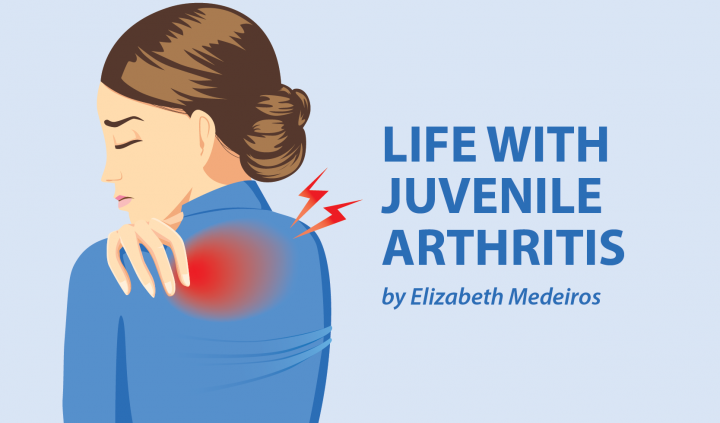Wouldn’t it be great if everything in life was straightforward?
Maybe your child is dealing with joint pain, and you suspect juvenile arthritis (JA). Or you’ve seen a few doctors, but none can figure out why your child isn’t feeling well. Unfortunately, a diagnosis of JA is not a straight and narrow path. It can be a complicated and discouraging journey that causes you to doubt yourself.
But you don’t have to go on the journey blind. Knowing what it takes to diagnose JA, who to turn to for help, and what you can do to expedite the process can ease the stress.
No single test
Unfortunately, there is no test to diagnose juvenile arthritis. Unlike adults with rheumatoid arthritis, most kids with JA are not positive for rheumatoid antibodies. Blood tests may not show any issues at all.
MRIs and X-rays can be helpful when they show damage to the joints, but they may not be as useful if JA is caught early. While normal lab results are a good thing, it is reasonable to feel frustrated that there is no “proof” of chronic pain.
Doctors tend to rely on health history and symptoms of inflammation to diagnose JA. This means it can take time — or a series of doctors — to get a diagnosis. Vague symptoms are sometimes dismissed as “growing pains,” and a prescription is given to exercise through the pain.
Do your homework
I recommend researching physicians before making arrangements to see them. Selecting a physician experienced with psoriatic arthritis may be your best bet if you have a family history of psoriasis. This is how I found my rheumatologist. Hospital websites will often outline a doctor’s interests. If possible, choose doctors with disease interests that line up with your child’s.
While there are many sites where patients can review their doctors, I wouldn’t take them to heart. People are more likely to leave a negative review, so even amazing physicians may have a bad review here and there. Sometimes, people also leave reviews about physicians that are complaints about the clinic itself. Of course, if a doctor has many bad reviews regarding similar issues (such as not listening to the patient), I would consider that. But don’t let a negative review sway you.
Other help
Pediatric rheumatologists are in short supply. It may be hard to get a referral to see one. It could be downright impossible if there are none in your state. While they are the best option to treat kids with JA, other physicians can help. Rheumatologists for adults often treat children in states without pediatric rheumatology.
Seeing an orthopedic specialist is another option. While they may be unable to treat your child’s arthritis at the source, they can help care for the joints. They may also be able to refer your child to someone who can help. Dermatologists can perform biopsies and refer you to rheumatological sources if your child has juvenile scleroderma, psoriasis, or rashes.
Home records
Now that you’ve found a doctor and made an appointment, gather materials to help the doctor. Provide medical records and keep track of symptoms as they occur. A symptom journal or calendar can be an easy way to log how your child is feeling. And make sure to take pictures of swollen joints to show the doctor.
Take a break
During the diagnosis process, make time for family activities. It’s an emotionally difficult time, and it benefits everyone to take time to do something fun. Whether it’s a family movie night or doing a craft together, spend time together and talk about everything but health issues.
And don’t hesitate to seek help if you or your child is struggling to cope. Counseling can be beneficial when you’re struggling with an undiagnosed illness.
My experience
It can take time to diagnose JA. In my case, it took a few years, a handful of doctors, and one misdiagnosis to be diagnosed with juvenile idiopathic arthritis (JIA) due to my unusual symptoms. After that, it took two years to realize my JIA was juvenile psoriatic arthritis. It was discouraging at times, but worth it to get the treatment that started to give me my life back.
***
Note: Juvenile Arthritis News is strictly a news and information website about the disease. It does not provide medical advice, diagnosis, or treatment. This content is not intended to be a substitute for professional medical advice, diagnosis, or treatment. Always seek the advice of your physician or other qualified health provider with any questions you may have regarding a medical condition. Never disregard professional medical advice or delay in seeking it because of something you have read on this website. The opinions expressed in this column are not those of Juvenile Arthritis News, or its parent company, BioNews Services, and are intended to spark discussion about issues pertaining to juvenile arthritis.

